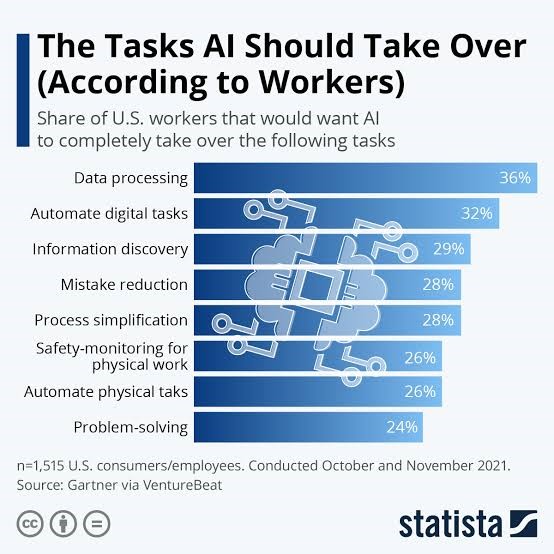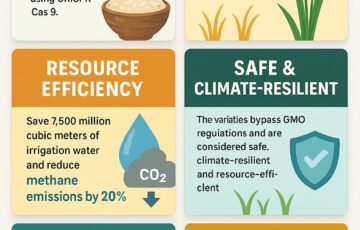Technology jobs have dried up : AI creating significant challenges
Syllabus:
GS-3:
- Science and technology -Development and their application.
- Recent development in the field of technology and its effect.
Focus:
The tech industry has seen a significant reduction in job opportunities, particularly in traditional software roles, as companies shift resources toward artificial intelligence (AI), creating a challenging landscape for job seekers in the tech sector.
Technology Job Market Decline:
- Shift Focus: The tech job market has shifted from growth-driven hiring to cautious recruitment, with companies focusing on revenue-generating products and AI development.
- Job Postings: Postings for software development jobs have decreased by over 30% since 2020, signalling a major contraction in demand for tech talent.
- Mass Layoffs: Tech industry layoffs have exceeded 137,000 jobs since January 2023, affecting employees across various departments, including software engineering and marketing.
- Economic Impact: Higher inflation and interest rates have cooled the economy, leading to hiring slowdowns and large-scale layoffs at some of the biggest tech companies.
- Hiring Spree End: The pandemic-induced hiring spree led to overstaffing, causing companies to reconsider workforce size and cut non-essential projects and roles.
AI’s Role in Labour Shifts:
- AI Investment: With AI technologies like ChatGPT gaining traction, companies are shifting significant resources toward AI development, deprioritizing other roles and projects.
- Skilled Workers: AI engineers are now among the few in-demand workers, with companies offering salaries up to four times higher than regular engineers.
- Strategic Shifts: Tech companies are now focused on AI innovation, pushing other growth projects aside to concentrate on building advanced AI systems.
- Broader Skills: Companies now seek tech workers with broader skill sets, including soft skills and collaboration abilities, to align with AI-driven strategies.
- Non-tech Sectors: Even non-tech companies are seeking AI expertise, driven by increasing boardroom expectations to develop comprehensive AI strategies for growth.
Changing Dynamics for Job Seekers:
- Job Hunt Struggles: Laid-off tech workers are finding it difficult to secure new positions, with many resorting to blasting resumes online and applying for hundreds of jobs.
- Networking Woes: Former tech employees, who once relied on networking or recruiter connections, are now facing dried-up contacts and fewer callbacks.
- Salary Cuts: Many job seekers are accepting lower salaries than before, with pay cuts becoming a common occurrence for those fortunate enough to secure new roles.
- Job Market Competition: Competition for jobs has intensified, with new graduates and experienced workers vying for a limited number of positions, especially in AI-driven roles.
- Skill-building: Tech workers are broadening their skill sets, enrolling in AI boot camps or pursuing additional degrees to stay competitive in a challenging job market.
Reduced Compensation and Perks:
- Pay Reset: Companies are reevaluating compensation packages, leading to stagnant wage growth and a 55% decline in equity grants for entry-level tech roles.
- Perks Diminish: Once-competitive tech perks like lavish office spaces, wellness programs, and flexible work arrangements are now rare as companies cut costs.
- Internship Decline: Companies have scaled back the number of internships offered, making it harder for fresh graduates to break into the tech industry.
- No More Red Carpet: During the pandemic, recruiters offered top compensation and benefits to woo tech talent, but now those attractive packages are much harder to come by.
- Pay Expectations: Workers are seeing more appropriate pay levels relative to their experience, as inflated salaries and job titles from the past decade are being readjusted.
Broader Industry Effects:
- Consulting Boom: Many tech companies are increasingly relying on consultants and outsourcing roles as they prioritize efficiency over maintaining large in-house teams.
- Global Competition: The rise of remote work has opened up tech jobs to global competition, allowing companies to hire from a broader talent pool outside the U.S.
- Non-tech Layoffs: Workers in non-technical roles, such as marketing and HR, have faced multiple layoffs as tech companies trim their operational teams.
- Dot-com Comparison: Some tech workers, too young to experience the dot-com bubble burst, are now facing the same harsh realities of a slowed tech market.
- AI Talent Demand: AI professionals remain a bright spot, with some being able to command salaries well into seven figures due to the scarcity of their specialized skills.
Way Forward:
- Reskilling Focus: Tech workers should prioritize learning AI-related skills, enrolling in boot camps or certifications that align with emerging technologies to stay competitive in the evolving job market.
- Flexible Job Search: Candidates should diversify job applications by exploring remote or freelance opportunities, leveraging global platforms to tap into markets beyond their immediate geographic location.
- Policy Support: Governments should implement policies that encourage upskilling, such as providing subsidies for AI-related courses or partnering with tech companies to facilitate reskilling initiatives for laid-off workers.
- Diversifying Careers: Tech professionals can consider transitioning to non-tech industries that are expanding their digital capabilities, where their expertise in tech can be highly valued, such as healthcare and finance.
- Collaborative Innovation: Companies need to invest in research and development that blends AI with other technologies, fostering collaborative teams that can deliver solutions across sectors rather than focusing on a singular AI-driven approach.
- Equitable Employment: Firms must prioritize creating equitable employment opportunities by balancing their investment in AI talent with broader tech roles, ensuring that innovation does not exclude skilled professionals from other domains.
About Artificial Intelligence initiatives in India:
National AI Portal:
- Joint initiative by MeitY, NeGD, and NASSCOM to promote AI in India.
- NeGD, established in 2009 under the Digital India Corporation, focuses on national e-governance.
- NASSCOM, the apex IT industry association, promotes IT and IT-enabled services in India.
- The portal serves as a central hub for AI-related news, learning, events, and resources in India.
Artificial Intelligence Mission:
- Mission Objectives:
Aims to build advanced computing capabilities and promote AI adoption across agriculture, healthcare, and education sectors, with a focus on startups and entrepreneurs. - Compute Capacity Goals:
Plans to establish 10,000-30,000 GPUs to enhance AI infrastructure, with an additional 1,000-2,000 GPUs through C-DAC, under a public-private partnership. - Collaboration:
Emphasizes private sector cooperation for developing national AI capabilities within the National Supercomputing Mission.
Conclusion
The tech job market is undergoing a fundamental shift driven by AI’s rise. While opportunities in traditional roles shrink, focusing on skill diversification and embracing AI presents viable avenues for sustainable career growth.
Source: Mint
Mains Practice Question:
“Examine the impact of artificial intelligence on traditional tech jobs and suggest measures to address the employment challenges posed by this technological shift.”






